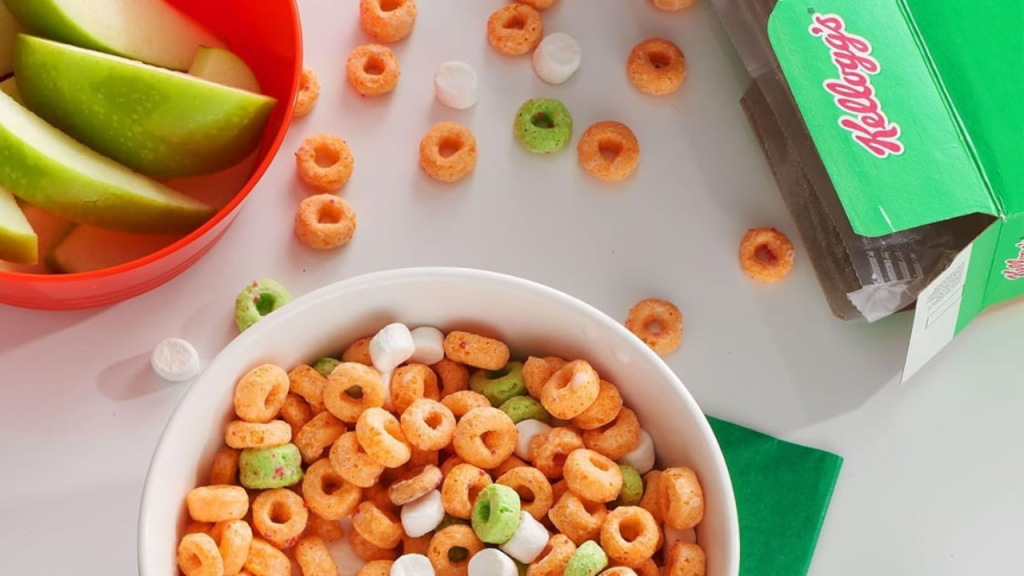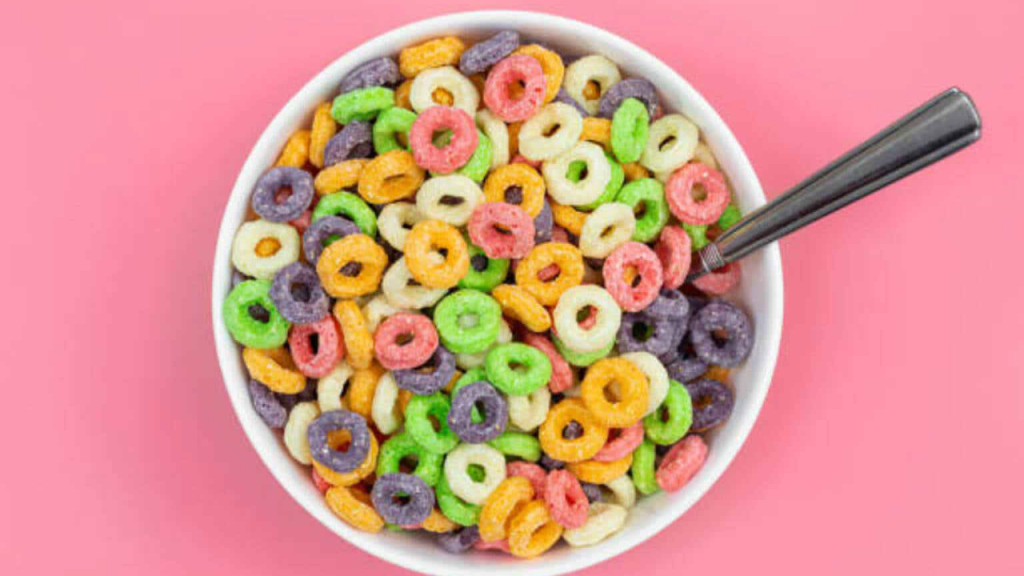
Texas Attorney General Ken Paxton has raised concerns about the health claims made by Kellogg’s, a company that produces some of the most popular breakfast cereals in the country.
Paxton’s office is investigating the company after accusations that its cereals are being marketed as “healthy,” despite containing artificial food colorings. These colorings, Paxton argues, have been linked to a variety of health issues, including hyperactivity, obesity, and even cancer.
Why is the Attorney General of Texas investigating Kellogg’s?
In early April 2025, Paxton made public a statement addressing the issue. He pointed specifically to well-known Kellogg’s cereals such as Froot Loops, Apple Jacks, Frosted Flakes, and Rice Krispies, which are often marketed as “healthy” choices for families.
Paxton’s office argues that these cereals continue to contain artificial food colorings, which have been shown to negatively affect health.
One of the main concerns Paxton highlighted was the use of “petroleum-based artificial food colorings.”
According to Paxton, these artificial additives have been linked to various health problems, including hyperactivity, obesity, autoimmune diseases, and even cancer.
“A critical part of fighting for our children’s future is putting an end to companies’ deceptive practices that are aimed at misleading parents and families about the health of food products,” Paxton stated.
He went on to say that such misleading practices contribute to the nation’s ongoing health problems, making people less healthy overall.
What Do the Experts Say About Artificial Food Colorings?
There Is a Growing Body of Scientific Research Supporting Paxton’s Concerns. In 2007, a Study Published in The Medical Journal Lancet found that Artificial Food Colorings, along with The Preservative Sodium Benzoate, Could Lead to Increased Hyperactivity in Children.
More recent studies, including a 2022 review on the connection between artificial food coloring and Attention Deficit Hyperactivity Disorder (ADHD), confirm these findings.
One study concluded that the consumption of artificial food colorings led to significant increases in ADHD symptoms in children. “The evidence now shows pretty conclusively that when some kids eat these, they will experience nervous system effects that look like ADHD,” said Thomas Galligan, a scientist at the Center for Science in the Public Interest, during an interview with NPR.
While there is still no definitive link between artificial dyes and cancer, some of these dyes contain contaminants that are potential carcinogens. For example, Red Dye No. 3 has been shown to increase cancer risk, although it is not used in Kellogg’s cereals.
What Artificial Dyes Are Used in Kellogg’s Cereals?

According to Paxton’s investigation, Kellogg’s cereals like Froot Loops and Rice Krispies contain artificial dyes in various colors, including blue, red, yellow, green, and orange.
These dyes are derived from petroleum-based sources and are widely used in food products across the country.
In 2015, Kellogg’s promised to remove artificial colors and flavors from all of its cereals and snack bars by 2018. This promise was part of the company’s effort to meet growing consumer demand for healthier products.
Paul Norman, who was the president of Kellogg’s North American operations at the time, stated, “Our goal is to complete this transition by the end of 2018.”
However, Paxton’s office points out that while Kellogg’s has made strides in reformulating its cereals in Canada and Europe to meet stricter ingredient standards, the same products in the U.S. have not undergone similar changes.
Paxton is calling for greater transparency from the company and accountability for its continued use of artificial dyes in American cereals.
In October 2024, protesters gathered outside Kellogg’s headquarters in Michigan, demanding that the company honor its pledge.
In response, Kellogg’s released a statement stating that more than 85% of its cereal sales now contain no colors from artificial sources. The company emphasized its commitment to creating new cereals without artificial colors and flavors.
How Is the Rest of The Country Addressing Artificial Food Dyes?
The investigation in Texas comes as several states and regulatory bodies are increasingly scrutinizing the use of artificial food colorings in products. In January 2025, the U.S. Food and Drug Administration (FDA) banned Red Dye No. 3 from food products, beverages, and ingested drugs.
The ban was issued under the Delaney Clause, part of the 1958 Food Additives Amendment, which prohibits the use of food additives that are found to cause cancer in humans or animals.
Other states have also moved forward with their own bans on artificial food dyes. For example, California implemented a ban on Red Dye No. 3 and several other food additives in 2023.
West Virginia recently passed a law that prohibits the use of several artificial dyes, including Red Dye No. 3, Blue Dye No. 1, and Yellow Dye No. 5, in food products. These changes are set to take effect by January 2028.
Consumers can stay informed about state-level food bills, including those targeting artificial dyes, by referring to resources like the Environmental Working Group’s interactive map, which tracks ongoing food legislation across the country.
What Does This Mean for Consumers?
As this investigation unfolds, consumers should be aware of the ongoing efforts to address artificial food colorings and other additives in the food supply.
While some companies are making progress in removing these additives, others, like Kellogg’s, are still facing pressure to reformulate their products.
Paxton’s investigation highlights the importance of holding companies accountable for misleading health claims. It also serves as a reminder that food labels can often be deceptive, and consumers need to make informed choices about the products they buy for themselves and their families.
